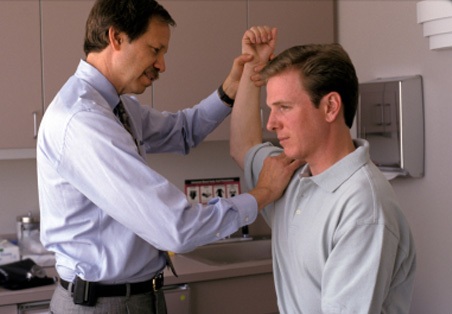Most breast lumps are a result of gynecomastia, not breast cancer. However, it’s important to have lumps evaluated promptly. If a problem exists, you can have it identified and treated as soon as possible. See your doctor if you discover a lump or any of the other warning signs of male breast cancer.
Male Breast Cancer Treatment
Male breast cancer is treated the same as it is in women. In most cases no one right breast cancer treatment exists. Instead, you’ll want to find the approach that’s best for you. To do that, you’ll need to consider many different factors, including the stage of your breast cancer and your age.
Male Breast Cancer Prevention
To help reduce your risk of male breast cancer, maintain a healthy body weight and avoid heavy alcohol use. Early detection also increases your chances of surviving the disease. So if you detect abnormalities, seek prompt care. After a diagnosis of male breast cancer, it may take some time to sort through all your emotions. But you can still feel in charge of your life. One of the best ways to regain control is to educate yourself about male breast cancer and its treatment. You’ll have many decisions to make in the weeks and months ahead. The more you know, the better prepared you’ll be to make the best choices.
In addition to talking to your medical team – your surgeon, medical oncologist (a specialist in chemotherapy and hormone therapy) and radiation oncologist (a specialist who administers radiation therapy) – you may also want to talk to a counselor or medical social worker. Or you may find it helpful and encouraging to talk to other men with cancer. There are also excellent books about male breast cancer and many reputable resources on the Internet. Be sure to look for the most current information, however. Breast cancer treatments are changing rapidly, and information quickly becomes dated. It’s important not to rely on just one source.
There are many different approaches to breast cancer treatment. Telling others Unfortunately, treatment decisions aren’t the only decisions you’ll face. Every day may present new challenges. One of the first will likely be how and when to tell those closest to you. If you have children, telling them no matter what their ages can be difficult. Yet it’s best to be as honest as you can. How much and what you say will depend on each child’s age and ability to understand. Tell your children you’re doing everything possible to get well.
The decision to tell friends and co-workers isn’t easy. Especially in the beginning, you may not want anyone outside your family to know. But over time you may find it helpful to confide in a few close friends or co-workers. Still, how much and whom to tell is up to you. Keep in mind that people may not always react as you expect. Some may have many of the same feeling you do – anger, fear, grief. Others may be incredibly supportive. And some may not say much at all or may even avoid you. That’s not because they don’t’ care, but because they may not know what to say. Let them know that there are no right words and their concern is enough.
Male Breast Cancer – Maintaining a strong support system.
More and more studies show that strong relationships are crucial in dealing with life-threatening illnesses. In fact, friends and family are often an integral part of your treatment. Sometimes, though, you may want or need different kinds of support. If so, you may find the concern and understanding of other men with cancer especially helpful. Your doctor or a medical social worker may be able to put you in tough with a group near you. Or contact one of the many cancer organizations. Male Breast Cancer – Taking care of yourself
During your treatment, you’ll need to plan your schedule carefully. Allow yourself time to rest. And don’t be afraid to ask for help. Your friends and family want to help, but they may not always know what to do. Be specific about your needs.
Now is a good time to start eating a healthy diet, getting regular exercise and reducing stress. In fact, stress-reduction techniques and exercise can actually help relieve some of the side effects associated with radiation and chemotherapy. Make it a priority to live your life to the fullest.

